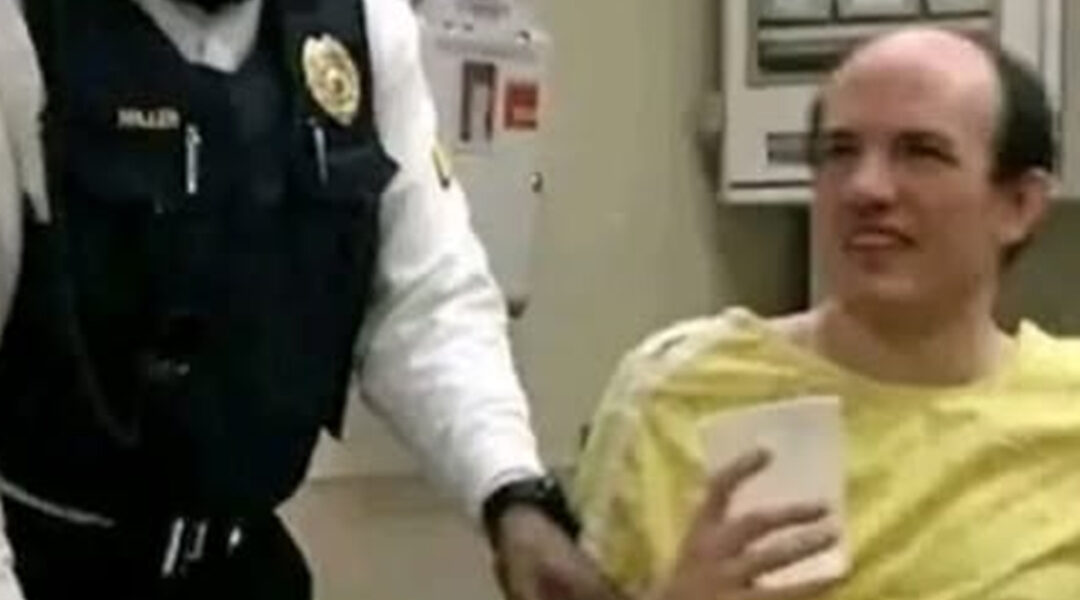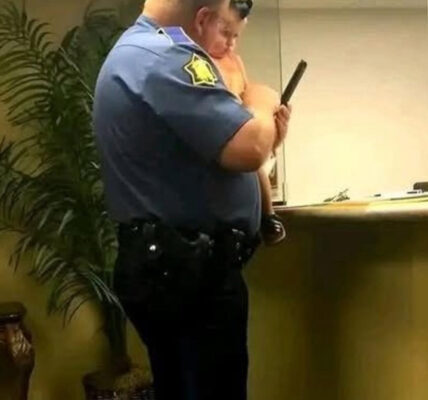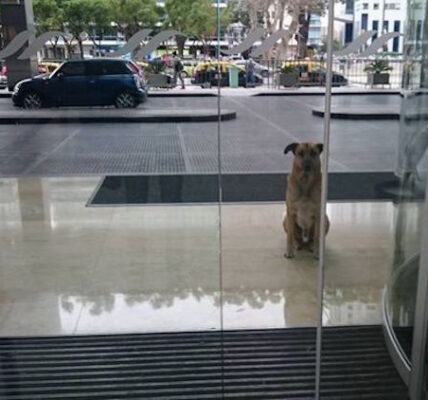A Heartwarming Act of Compassion: How Hospital Security Officers Helped an Autistic Man in Crisis.

Ellen Hughes and her husband had seen their son Walker, who has autism, through many challenges in his 34 years. He had spent much of his life in and out of hospitals due to his condition, but nothing had quite prepared them for the intense situation they now faced. When Walker began reacting violently to a new medication meant to calm him down, his behavior escalated rapidly. What should have been a calming medication had instead caused a paradoxical reaction, leaving him attacking his parents at home, a stark contrast to his usual gentle nature.
The couple was at their wit’s end, unsure how to manage their son’s behavior. After consulting with a doctor, they were advised to bring Walker to Loyola University Medical Center in Chicago immediately. The urgency of the situation weighed heavily on them as they hurried to the hospital, hoping that the medical team could help him regain control.
However, things took a turn for the worse before they even reached the hospital doors. As they entered the facility, Walker, in his agitated state, bit Ellen’s hand, causing her to let out a startled cry of pain. At that moment, Ellen feared the worst—that hospital security would react harshly to the scene unfolding before them.
Within seconds, the couple was surrounded by hospital security officers. But instead of the mistreatment they feared, the officers responded with surprising empathy and understanding. They didn’t treat Walker as a threat. Instead, they focused on calming him and offering reassurance. Ellen, exhausted and stressed, felt a sense of relief wash over her as the officers began to speak kindly to Walker, handling the situation with patience and care.
This compassionate response was thanks to Sgt. Keith Miller, a man whose personal experience as the father of a 14-year-old son with autism deeply informed how he trained the hospital’s security team. Recognizing that autistic patients often face challenges that require a more nuanced approach, Sgt. Miller had made it his mission to ensure that every officer was equipped to handle situations involving autism with kindness and respect.
The officers, under Sgt. Miller’s guidance, went above and beyond. As Walker was settled onto the hospital examination table for treatment, they remained by his side, comforting him throughout the process. For the next two and a half hours, while Walker was treated and medicated, the security team didn’t just stand by—they actively engaged with him, offering songs, games, and even dancing to help distract him from his distress. They cheered him on with encouraging words, turning a difficult experience into one filled with empathy and positive energy.
Ellen, who had braced herself for a confrontation with hospital security, was moved by their actions. “They were so patient and kind with him,” she said later. “It was a relief to see them treating him like a person, not just a case.” She realized that the officers’ support not only helped Walker but also provided emotional comfort to her and her husband in a time of immense stress.
The response from Sgt. Miller and his team made all the difference in Walker’s treatment experience. Their approach was not just about calming an agitated patient; it was about offering respect, understanding, and genuine care. This act of kindness wasn’t just a rare display of empathy—it was the direct result of training and a deep personal connection to the challenges faced by families with autism.
Sgt. Miller, whose own son faces similar challenges, shared that his approach to training security officers stemmed from his desire to ensure that every child and adult on the spectrum receives the compassion and respect they deserve in any setting. He understood that people with autism can react differently to situations, especially when overwhelmed, and that the typical methods of handling stressful situations often don’t work for them. The ability to see beyond a patient’s behavior and treat them with dignity is something that can truly change the course of their experience in a hospital or healthcare environment.
Walker’s time at the hospital ended on a positive note thanks to the combined efforts of the medical staff and the compassionate security officers. After receiving the treatment he needed, Walker was able to calm down and recover, but the lasting impact of the officers’ support was not lost on Ellen and her husband. It was a reminder that even in the most challenging moments, the smallest acts of kindness can have the biggest effect. For them, the kindness shown by the hospital security officers was something they would never forget.
The experience also highlighted the importance of training healthcare workers—security included—to approach patients with autism and other disabilities in a thoughtful and understanding way. Sgt. Miller’s efforts to create a culture of compassion within the hospital’s security team were clearly reflected in the team’s actions that day.
For Ellen and her husband, the experience at Loyola University Medical Center was an unexpected but deeply moving one. Not only did their son receive the medical care he needed, but they were also reminded that there are still people in the world who will go out of their way to offer kindness and understanding, no matter the situation. It was a reminder that even in the toughest of times, humanity can shine through in the most surprising places.




